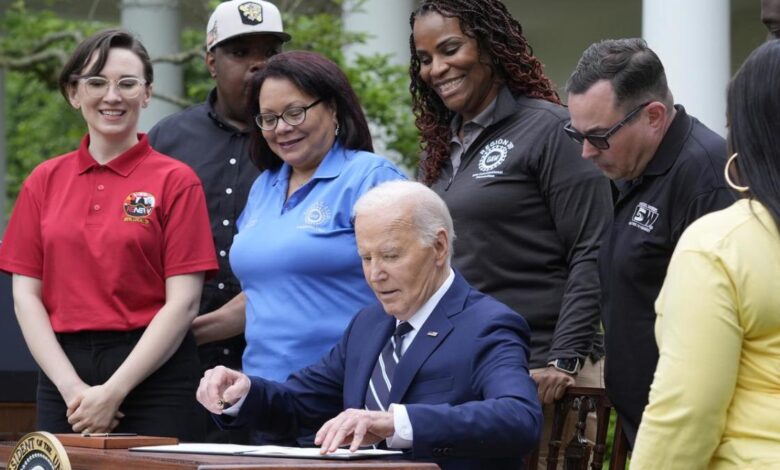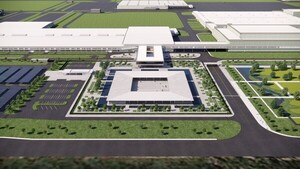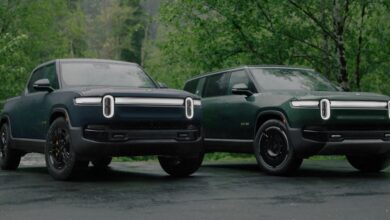Biden says US to hike tariffs on Chinese electric cars

US President Joe Biden has unveiled steep tariff increases on an array of Chinese imports including electric vehicle batteries, computer chips and medical products, risking an election-year stand-off with China as he woos voters who give his economic policies low marks.
“American workers can out-work and out-compete anyone as long as the competition is fair but for too long it hasn’t been fair,” Biden said during a speech in the White House Rose Garden before unions and companies.
“We’re not going to let China flood our market.”
China immediately vowed retaliation.
Its commerce ministry said China was opposed to the US tariff hikes and would take measures to defend its interests.
Biden will keep tariffs put in place by his Republican predecessor Donald Trump while ratcheting up others, including a quadrupling of EV duties to more than 100 per cent and doubling the duties on semiconductor tariffs to 50 per cent.
I just imposed a series of tariffs on goods made in China:
25% on steel and aluminum,
50% on semiconductors,
100% on EVs,
And 50% on solar panels.China is determined to dominate these industries.
I’m determined to ensure America leads the world in them.
— President Biden (@POTUS) May 14, 2024
The new measures affect $US18 billion ($A27 billion) in imported Chinese goods including steel and aluminium, semiconductors, electric vehicles, critical minerals, solar cells and cranes, the White House said.
The EV figure, while headline-grabbing, may have more political than practical impact in the US – which imports very few Chinese EVs.
The announcement confirmed earlier Reuters reporting.
The United States imported $US427 billion in goods from China in 2023 and exported $US148 billion to the world’s No. 2 economy, according to the US Census Bureau, a trade gap that has persisted for decades and become an ever more sensitive subject in the US.
US Trade Representative Katherine Tai said the revised tariffs were justified because China was stealing US intellectual property.
But Tai recommended tariff exclusions for hundreds of industrial machinery import categories from China, including 19 for solar product manufacturing equipment.
Even as Biden’s steps fell in line with Trump’s premise that tougher trade measures are warranted, the Democrat took aim at his opponent in November’s election.
Biden cast Trump’s 2020 trade deal with China as failing to increase US exports or jobs, and he said a Trump proposal to raise import tariffs 10 per cent across-the-board from any point of origin would raise prices.
Trump, who has floated tariffs of 60 per cent or higher on all Chinese goods, said on Tuesday the Biden administration’s new tariffs should be applied to other types of vehicles and products “because China’s eating our lunch right now”.
“He’s been feeding them a long time,” Biden retorted when asked about the comment.
Administration officials said their measures are combined with domestic investment in key industries and unlikely to worsen a bout of inflation that has already angered US voters.
Biden has struggled to convince voters of the efficacy of his economic policies despite a backdrop of low unemployment and above-trend economic growth.
A Reuters/Ipsos poll last month indicated Trump had a seven percentage-point edge over Biden on the economy.
Analysts have warned that a trade tiff could raise costs for EVs overall, hurting Biden’s climate goals and his aim to create manufacturing jobs.
Biden has said he wants to win this era of competition with China but not to launch a trade war.
Both 2024 US presidential candidates have departed from the free-trade consensus that once reigned in Washington DC, a period capped by China’s joining the World Trade Organisation in 2001.
Trump’s broader imposition of tariffs during his 2017-2021 presidency kicked off a tariff war with China.
As part of the long-awaited tariff update, Biden will increase tariffs this year under Section 301 of the Trade Act of 1974 from 25 per cent to 100 per cent on EVs, bringing total duties to 102.5 per cent, from 7.5per cent to 25 per cent on lithium-ion EV batteries and other battery parts and from 25 per cent to 50 per cent on photovoltaic cells used to make solar panels.
Some critical minerals will have their tariffs raised from nothing to 25 per cent.
The tariffs on ship-to-shore cranes will rise to 25 per cent from zero, those on syringes and needles will rise to 50 per cent from nothing now and some personal protective equipment (PPE) used in medical facilities will rise to 25 per cent from as little as 0 per cent now.
Shortages in PPE made largely in China hampered the United States’ COVID-19 response.
More tariffs will follow in 2025 and 2026 on semiconductors, as well as lithium-ion batteries that are not used in electric vehicles, graphite and permanent magnets as well as rubber medical and surgical gloves.
A step Biden previously announced to raise tariffs on some steel and aluminium products will take effect this year, the White House said.



